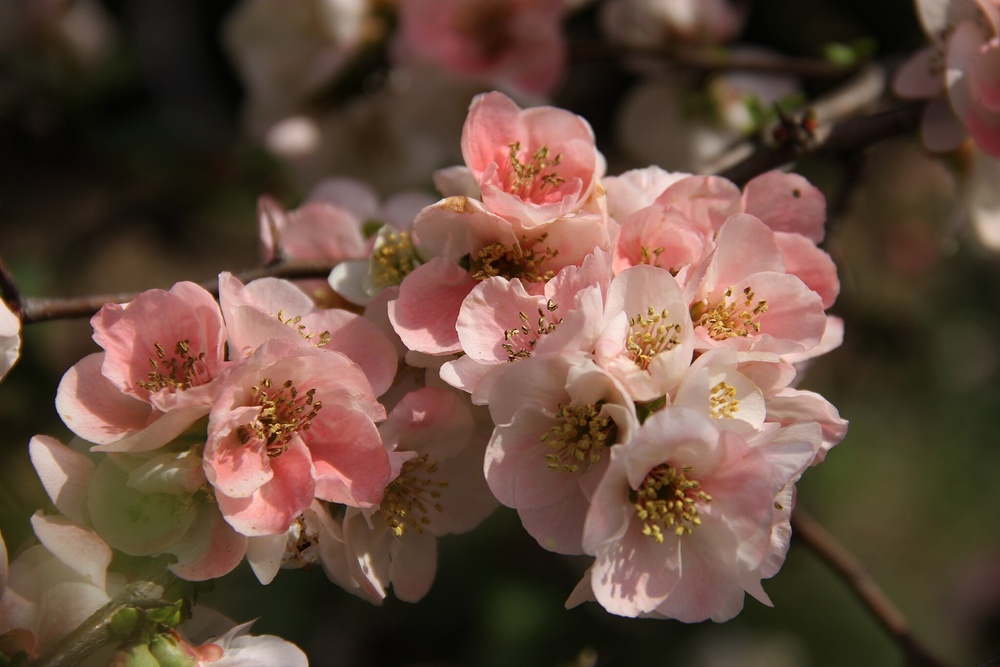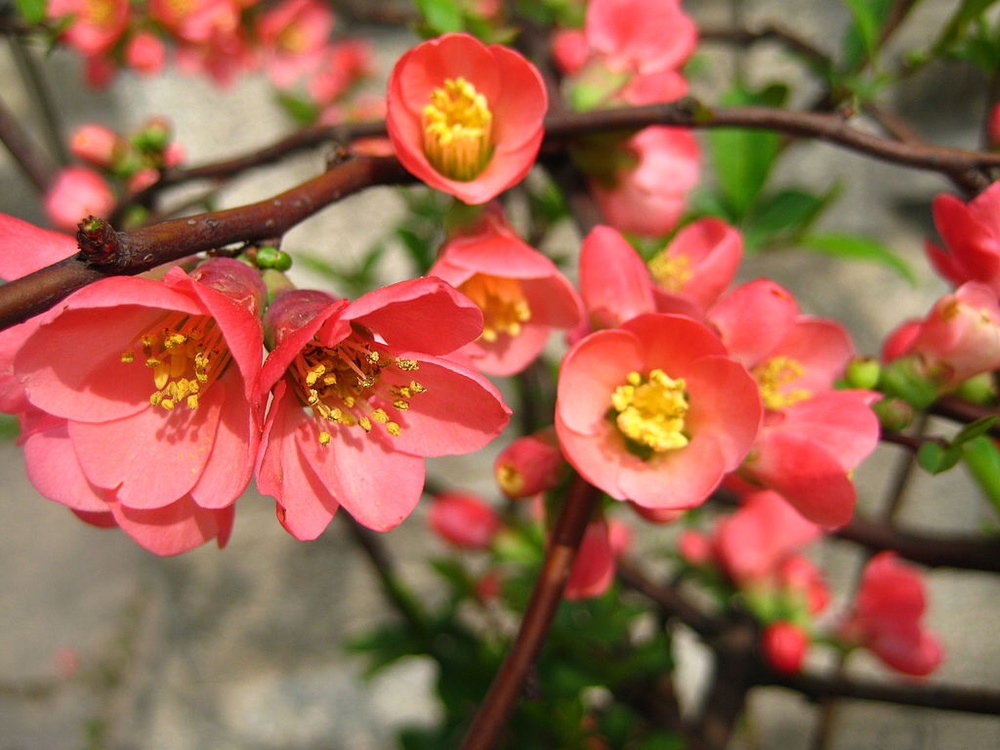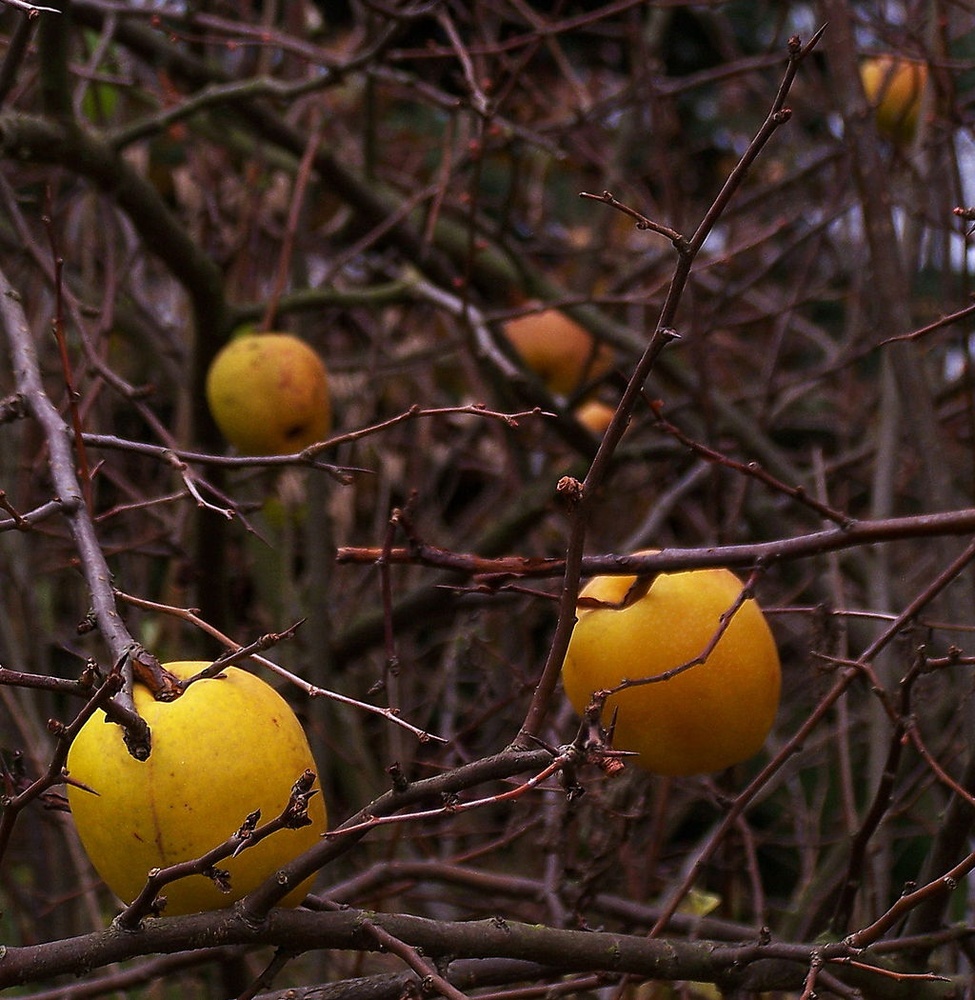Chaenomeles speciosa
Dwergkwee, sierkwee
Rosaceae (Rozenfamilie)
Edible plant part (2)
Flowers,
fruits
Read 'form of consumption' for safe preparation methods
Toxic plant part (1)
Seeds
Chaenomeles speciosa belongs to the small trees-large shrubs in the food forest. In the process of ecological succession it is a mid and late species. The growth rate is fast. Fully grown the plant has an average height of 2 to 5 meter. and a width of 2 to 5 meter.
The foliage (or leaf cover) is half-open.
This species forms a shallow root system. This species is non spreading in the food forest.
 foto: Roozitaa, https://commons.wikimedia.org/wiki/File:Chaenomeles_japonica_nameless19112006.jpg
foto: Roozitaa, https://commons.wikimedia.org/wiki/File:Chaenomeles_japonica_nameless19112006.jpg
 foto: Roozitaa, https://commons.wikimedia.org/wiki/File:Chaenomeles_japonica_nameless19112006.jpg
foto: Roozitaa, https://commons.wikimedia.org/wiki/File:Chaenomeles_japonica_nameless19112006.jpg
 foto: Shimizusatsuki, https://upload.wikimedia.org/wikipedia/commons/thumb/1/14/Chaenomeles_speciosa_01.JPG/1024px-Chaenomeles_speciosa_01.JPG
foto: Shimizusatsuki, https://upload.wikimedia.org/wikipedia/commons/thumb/1/14/Chaenomeles_speciosa_01.JPG/1024px-Chaenomeles_speciosa_01.JPG
 foto: Anna Uciechowska, https://upload.wikimedia.org/wikipedia/commons/thumb/c/c8/Chaenomeles_japonica_nameless19112006.jpg/1024px-Chaenomeles_japonica_nameless19112006.jpg
foto: Anna Uciechowska, https://upload.wikimedia.org/wikipedia/commons/thumb/c/c8/Chaenomeles_japonica_nameless19112006.jpg/1024px-Chaenomeles_japonica_nameless19112006.jpg
Growth factors
- Frost (whole plant)
-
very strong frostcold frostmild frostlight frostno frost
- Frost (flowers)
-
very strong frostcold frostmild frostlight frostno frost
- Light
-
full sunlight shadehalf shadefairly deep shadedeep shade
- Wind
-
strong sea windstrong windsome windshelteredvery sheltered
- Soil texture
-
sandloamlight clayheavy claypeat
- Soil moisture
-
inundationwetmoistdrydrought
- Groundwater level
-
very lowlowmediumhighvery high
- Soil acidity
-
very acidacidneutralalkalinevery alkaline
- Soil fertility
-
very richrichaveragepoorvery poor
Flowering and pollination
- Flowering period (peak)
- early april, mid april, end of april
- Flowering period (length)
- several weeks
- Pollination vector
- insects
- Plant reproductive fertility
- self-fertile (sf)
Life Span and Plant Health
Disease susceptibility
very resistantMain serious pests and diseases
none applicableHarvest and Consumption
Flowers
Fruits
- Harvest location edible part
- Above reach, elbow height, high, but within reach, knee height
- Harvest location edible part
- Above reach, elbow height, high, but within reach, knee height
- Harvesting period - start
- Early september, mid september, end of september, early october, mid october, end of october
- Harvesting period - length
- Several months
- Harvesting period - uniformity
- High
- Suitable harvesting methods
- Hand
- Size edible parts
- Small
- Form of consumption
- Fresh, processed
- Natural storability
- Several months
- Nutritional value - relatively high
- Vitamins
- Suitable markets
- Niche
- Productive life span - start (year) - minimum
- 3
- Productive life span - peak (year) - minimum
- 12









































